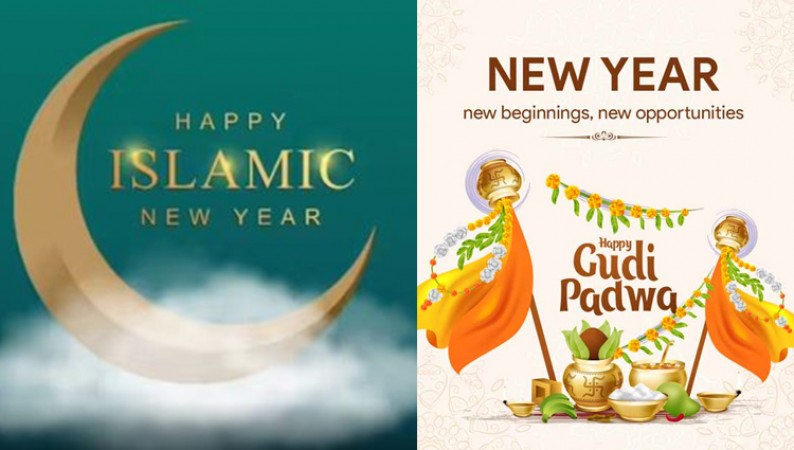
The start of a new year is a time of reflection, renewal, and celebration across different cultures and religions. Two significant new year observances, Islamic New Year and Hindu New Year, provide an opportunity to explore their unique traditions and understand the distinctive aspects that set them apart. In this article, we delve into the Islamic New Year, also known as Hijri New Year or Muharram, and highlight its differences from Hindu New Year celebrations.
Islamic New Year (Hijri New Year):
The Islamic New Year marks the beginning of the Hijri calendar, which is based on the lunar cycle. The precise date varies each year since the Islamic calendar follows a 354 or 355-day lunar year, as opposed to the solar year of the Gregorian calendar. The first month of the Islamic lunar calendar is Muharram, which holds immense significance for Muslims worldwide.
Solemnity and Reflection:
Islamic New Year is typically observed with a sense of solemnity and reflection. It serves as a reminder of the Hijra, the migration of Prophet Muhammad from Mecca to Medina in 622 CE, which marked the beginning of the Islamic era. Muslims often engage in introspection, seeking personal growth, and contemplating their relationship with Allah (God) and the Islamic teachings. It is a time to renew one's faith, seek forgiveness, and set spiritual goals for the year ahead.
Muharram and Ashura:
Muharram, the first month of the Islamic calendar, is particularly significant due to the commemoration of Ashura. Ashura is observed on the 10th day of Muharram and holds different meanings across various Muslim communities. For some, it marks a day of fasting to express gratitude for the liberation of the Israelites from Egypt. For others, it is a time to mourn the martyrdom of Imam Hussein, the grandson of Prophet Muhammad, in the Battle of Karbala. The commemoration of Ashura varies in its practices, with some engaging in processions and rituals to honor Imam Hussein's sacrifice.
Hindu New Year:
Hindu New Year, known by various names such as Puthandu, Ugadi, Vishu, or Baisakhi, is celebrated at different times and with diverse traditions across various regions in India. The Hindu calendar follows a solar cycle and is based on the positions of the sun and moon. The specific date for Hindu New Year can vary depending on the regional calendar followed, such as the Tamil, Telugu, Malayalam, or Punjabi calendars.
Joyous Celebrations:
Hindu New Year is generally marked by joyous celebrations and cultural festivities. It is a time of family gatherings, exchanging greetings, and engaging in religious rituals. People clean their homes, wear new clothes, and decorate with vibrant colors. Traditional customs include offering prayers, seeking blessings from deities, and indulging in festive delicacies.
Regional Diversity:
One of the notable aspects of Hindu New Year celebrations is the regional diversity in customs and traditions. Each region has its unique way of welcoming the new year, with specific rituals, cultural performances, and special dishes that reflect the local customs and practices.
Conclusion:
Islamic New Year and Hindu New Year are significant observances that symbolize new beginnings and offer opportunities for spiritual reflection and cultural celebrations. While Islamic New Year is rooted in the lunar calendar and carries a sense of solemnity, Hindu New Year celebrations vary across regions, characterized by joyous festivities and diverse cultural customs. Understanding and appreciating the distinctions between these two new year observances fosters greater intercultural understanding and appreciation for the rich tapestry of traditions that shape our global community.
Bhardwaj Muni's Vimana Shastra: Unveiling Ancient Indian Knowledge for Modern Aircraft Engineering
Checkmating History: Chess, the Oldest Game Born in India
Cultural Festivals Around the World: Celebrating Diversity and Tradition